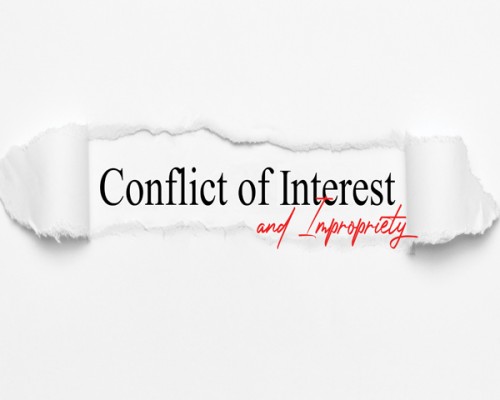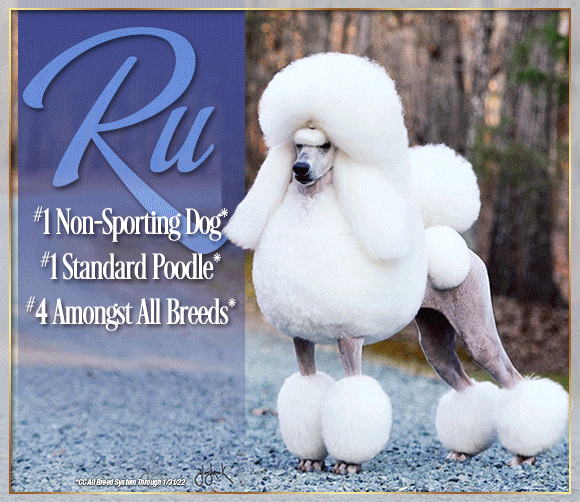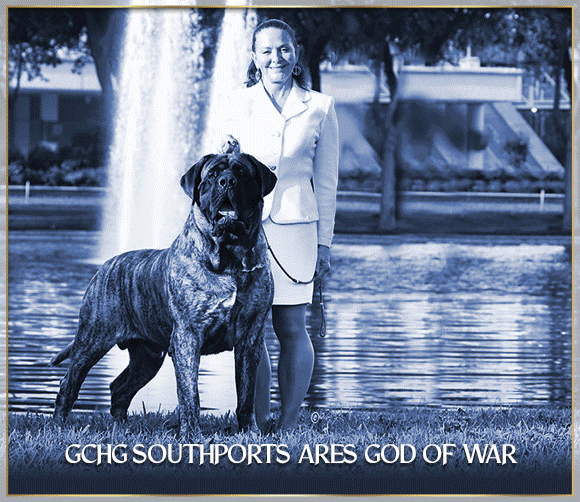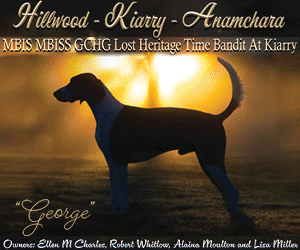Conflicts of Interest and Impropriety

Here is the scene:
It is the opening day of a cluster of significant shows–the Tuesday prior to the 2021 Royal Canin/AKC National Championship. The convention center is very spacious, and there are a lot of exhibitors. These are the largest indoor shows I have been to since Covid. There is a nice but not huge entry in my breed. When I pick up my number, I scan the catalog, as one does, to see who else is entered.
At a major show like this, I would not normally be surprised to see the #1 ranked dog in my breed. It would make sense, right? The dog was ringside with his owner and handler. Less than 100 feet away, in an adjacent ring, the judge was the man to whom the dog’s owner was once married, with whom she still worked, and with whom she had bred and raised this very dog. To me, this did not make sense.
I have been showing my breed for more than 30 years. I consider myself a breeder-owner-handler, and someone who cares a great deal about the stewardship of the breed. About 10 years ago, I began judging; I include this not to claim any great authority but rather to explain that as a judge, I have had to read and rely on the AKC Judges Rules and Regulations and I am much more familiar with its content than I had been before.
I have shown against this dog and owner many times. I have congratulated her in the past for her wins, and she has congratulated me upon mine. Oftentimes, at shows all across the country, I have seen the judge–who was judging in the ring 100 feet away this day–standing ringside watching them in breed competition, as a spectator or helping with photos.
I am not trying to be disingenuous by not naming names. Many readers will be able to fill in the blanks correctly—but I imagine that what happens in my breed probably happens in other breeds as well; and if not exactly the same, then something similar. And while I appreciate the anonymity of this forum, none of my actions were made covertly or furtively, or behind anyone’s back. After the completion of judging on the subsequent day, I told the owner directly that I thought it was inappropriate for her to be exhibiting at these shows and that I would be filing a complaint.
According to the owner and the judge—and the rules of the AKC—since the two are not part of the same household, do not live together, and because the judge does not co-own the dog—no conflict exists here whatsoever. I have no evidence to contradict any of these facts.
So, should I just let this go?
In all the many years that I have been showing dogs, I have never once protested formally to the AKC. If there was no conflict of interest on paper, why did I smell more than a whiff of something amiss here? And I wasn’t the only one: an AKC Field Rep said to me that day in Orlando that her mouth was hanging open—“the audacity,” she said.
A great many people said that they would sign on to my complaint; a few did. Many more said they were afraid of the repercussions. But within days, people I had never met were coming up to me to offer their support; it was on a lot of peoples’ minds.
Sometimes the facts tell only a part of the story: while the judge in question and the owner in question are not presently married, and do not legally reside in the same residence, they remain linked, inseparable in our world as perhaps Lucy and Desi were in theirs. Most people, by the way, have no idea that Desi and Lucy were divorced. The judge and the owner travel to shows together–often over long distances. The judge’s name and image are on prime, loving display on the owner’s social media. That this dog is theirs as much as if not more than just hers is self-evident.
After filing a formal complaint, as I was instructed, to the Officers and Directors of the AKC, the various show chairpeople of the shows at this cluster and the show chairman of the Westminster Kennel Club, where I could see this judge figured prominently on the panel, and then a lengthy back and forth email exchange with the Judges Operations Department (no one else responded to my letter), the AKC position was that no rules were broken and the exhibitor was eligible to show. In their argument, the AKC cited several examples of similar instances where the definition of household had been the basis for determining conflict or no conflict of interest: where children of judges were allowed to show at clusters where a parent was judging because they did not live at the same address, and where a certain exhibitor was excused from the group ring at Westminster because he resided at the same property as the judge.
My complaint was denied, and no further action was deemed necessary.
I accept the AKC rules and rulings just as I have in the past.
But still, I believe there is a conversation we should be having here—and I don’t know how to open it up for discussion and debate — because we should expect better.
I am under no illusion that dog shows are perfect, that the fields we play and compete on are immaculately level. I am neither jaded or naive. Advertising and social media make some impression on the collective psyche of the fancy; if ads had no impact, no one would be tempted to advertise. If social media didn’t worm its way algorithmically into our thoughts, it would cease to thrive. Strategy, picking where you show, is important; it’s what distinguishes campaigning from specialling. Reputation plays a part, as does momentum. And there is the never-ending debate about the privilege earned by or afforded to professional handlers; in response, the AKC created the consolation prize with the NOHS division.
And it’s not like the AKC doesn’t already have a lot of rules and regulations with terms that define households and conflicts of interest, and rules that define distances and dress code and ring procedure. It continues to send out clarifications as recently as a few months ago. There’s no question that the AKC has the authority and the covenant of member clubs and participants to maintain the standards and codes of conduct. The AKC is tasked with preserving the essence and spirit of the sport–the soul if you will–as well as the activities and actions. The AKC regulates both impropriety and the impression of impropriety.
Here’s what the rulebook states as a Handy Rule of Thumb: “There will always be ’gray areas’ that perplex judges. When faced with such a dilemma, ask yourself whether the situation, however innocent, projects an outward appearance of impropriety. A good rule of thumb is: If you have concerns about whether something is inappropriate, you probably should avoid the situation.
Since there would be no way to know for sure if an exhibitor and a judge having dinner prior to a dog show were talking about certain dogs or something completely innocent, rather than accept the possibility of impropriety and the impression of it, the AKC chooses to prohibit the dinner itself.
The great challenge here is not what constitutes impropriety, but what constitutes the appearance of impropriety. I can say that in the ring where my breed was being judged that day, and just outside the ring, that impression of impropriety was palpable and thoroughly disheartening—meaning literally I could feel it in my heart—and had nothing to do with the outcome of the judging. It triggered an almost primal response and a lasting aftertaste.
Perhaps from a certain distance and perch above, the AKC can say they don’t perceive that impression, or that they don’t feel it the way I did, but the AKC knows all too well–or it should–that the outward appearance of impropriety doesn’t go away if you tell people to ignore it. If it isn’t controlled and corrected, then it seems to be sanctioned by the organization. Then the same actions are repeated, and then the smell becomes a stench.
By their own standards of responsive action, it would seem the AKC would want to step in here. As the handbook suggests: “ask yourself.” Shouldn’t they?
Might there be instances where a judge’s interest and involvement in a dog is clear even if his or her name is not on it? If a judge and an exhibitor collaborate on strategy, determining where a dog should be shown, isn’t that a shared interest, a form of collusion, that sets up potential conflict? Should exhibitors and judges be permitted to travel together and stay together at shows? Or are there some privileged few who are allowed to side-step the underlying principles of fair play and good sportsmanship that underpin all of the rules?
A few words (see italics) could be added to the rule book section on breeding and handling: “you should never transfer or lease a dog to someone or obscure or obfuscate your shared or vested interest in a dog for the sole purpose of permitting the dog to be exhibited at shows or companion shows where you are officiating, and you should never own or co-own a dog for the sole purpose of handling it.”
I’d love to hear your thoughts.

Short URL: http://caninechronicle.com/?p=224919
7 Comments for “Conflicts of Interest and Impropriety”
Comments are closed













This is an on-going occurrence in different variations. The funny thing is that these, generally narcissistic, people think that people don’t see it or know about it. Heard of many judges that “own” dogs, but their name is not on it. Saw a judge show their dog in one ring to a former AKC rep at a prestigious show with their significant other judging in the ring next to it. Guess who won? Was it the best dog? I don’t know. I wasn’t even there, saw it on the AKC video. Did it influence how exhibitors thought about all of those judges, yes. I wrote AKC, they did not care about it. No rules broken, they did not reside in the same home. Then you have the ones that call themselves “professional” handlers that as soon as they lose one day start talking to every judge and professional handler they can so everyone knows they lost to a “bad” dog. Then show up at the ring the next day with their pro-handler friends there to support them, so that judge cannot make the wrong decision. Is it okay to show to judges that you were paid to show their dogs in the past. Would that influence a judge? The fact is that the unscrupulous will always be unscrupulous. The advertising and social media influence the wins, it will always be that way. The sport relies on the honesty of the judges that are judging the dogs. The problem lies in that when this type of questionable situation occurs, the judge actually in the ring judging dogs gets their reputation damaged also because people wonder if they were “in on it”. Then if someone does speak up, you are called a trouble maker and your rep gets damaged. So you are told to shut up and just deal with it, don’t show to that judge again. Some of us cannot afford a $5,000 plus advertising budget. We cannot drive cross country each week. We can afford to get to the shows, generally the local ones, a few times a month and that already puts us behind. Some can only attend two days of a five day cluster because we have a job outside the dog show world. So all that we can rely on is the judges judging with integrity and honesty. Do not rely on what you saw in the group the night before. You do not know who was in the ring that day. Judge what is in your ring. I was once told that I needed to advertise my dog in order to get that last BIS to break the record. My reply was that I would advertise after he broke the record, if he ever did, because I didn’t want sny judge influenced by advertising. He got that BIS and broke the record and the sweetest words I heard the judge say was that they did not know there was a record to be broken. The fact is that the future of the sport is in the hands of the judges. Do not think us less known people in the dog show world do not see and hear stuff. And the more it occurs, the more people lost to this sport. It is late February now, I have yet to go to or enter a show this year and who knows when I will.
I have no knowledge of the breed or the players in this scenario. If the facts as provided are accurate, as a Judge and former Asst. Director of Judging Operations, I believe this meets the definition of Conflict of Interest. However, my opinion is no longer relevant.
When we were first starting out in the sport fifteen years ago, I asked someone why they wanted to be a judge. They were very honest with me. They told me it was so their dogs would win. Period. They would get to know other judges, who would show them favoritism. They might get the chance to judge and advance their own breedings too even if they did not own the dogs in the ring. I was gobsmacked – but then have seen it many times in the ring since.
The rule is there and the AKC didn’t follow it. You felt it was improper, therefore it should be considered as improper and effectively dealt with. I personally believe that this would be agreed to ina court of law. I am not a lawyer. I agree with you completely but I have found the AKC doesn’t follow its own guielines and constitution and by laws. It does in your opinion show a conflict of interest. I have had two new to the dog show world show puppies I bred under my mother in law who has no clue about my breeding program. She is an AKC judge. They both won under her and had points taken away. I am not certain why this is any different then your situation.
I have always understood the rule to be – that a dog/exhibitor should not be entered IF there was a possibility of the judge being assigned to their ring — as in the case of the Westminster dog: Whoever dreams that they will make it to Best in Show where there breeder is judging?
I have seen this happening more often than not.
I have been told to my face I had a better bitch BUT the judge had to put up the hander they needed the bonus money.
I have seen so much political CRAP going on. I still do health tests and breed show-quality dogs.~ One of my puppies finished today. BUT I Will never EVER step into the ring again. The judges are choosing handlers over better-quality dogs. AND are blatant about it because we can not do anything. Even supplying AKC with videos of dogs pacing? or moving like an egg beater in the front?? Because a judge was on the lead? HORRID and now there are offspring from that dog doing the same thing in the ring with (a handler at the helm) winning? BEST IN SHOW? Really? No thank you. This has become not what you show but a who you know sport. Good breeders who breed to the standard, produce what their dogs are supposed to be cannot compete with the faces on the end of the leads showing dogs that look deer-like? how is that a working dog that should be able to take down a person? heavy boned and square has become a thing of the past. My dream is to have AKC judges fill out some kind of 1-5 scale for the breed standard and the dog in front of them… That way they are held to the standard of being a licensed judge.
Dog Shows are full of such shenanigans. Whether it’s showing to a Judge you fed the night before, or an exhibitor who sends gifts as Thank yous. The Best Dog seldom wins. At Westminster the dog or handler retiring wins, and mentors train new Judges to place dogs with their faults. Save your money, skip the big shows unless you have an IN with your Judge.